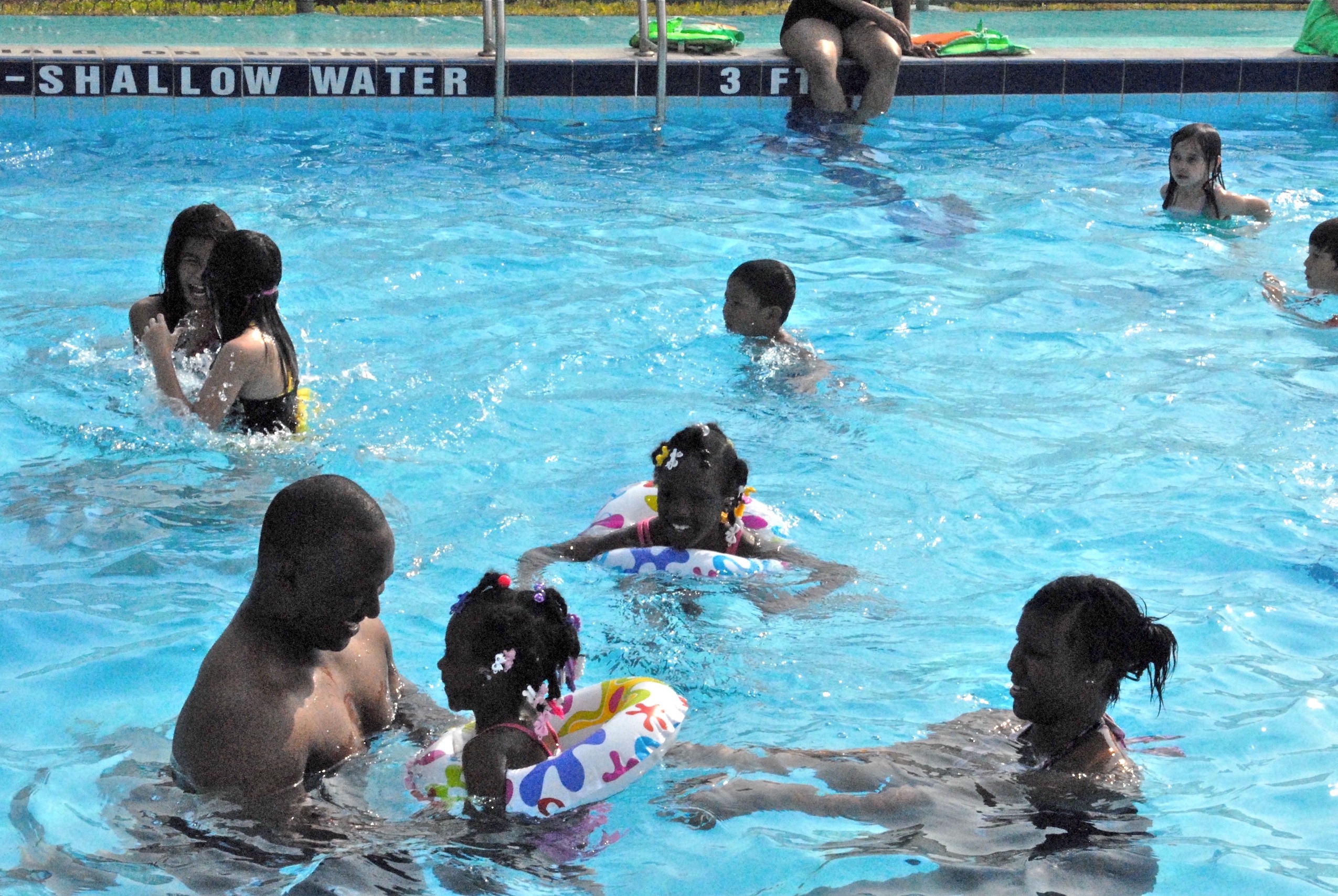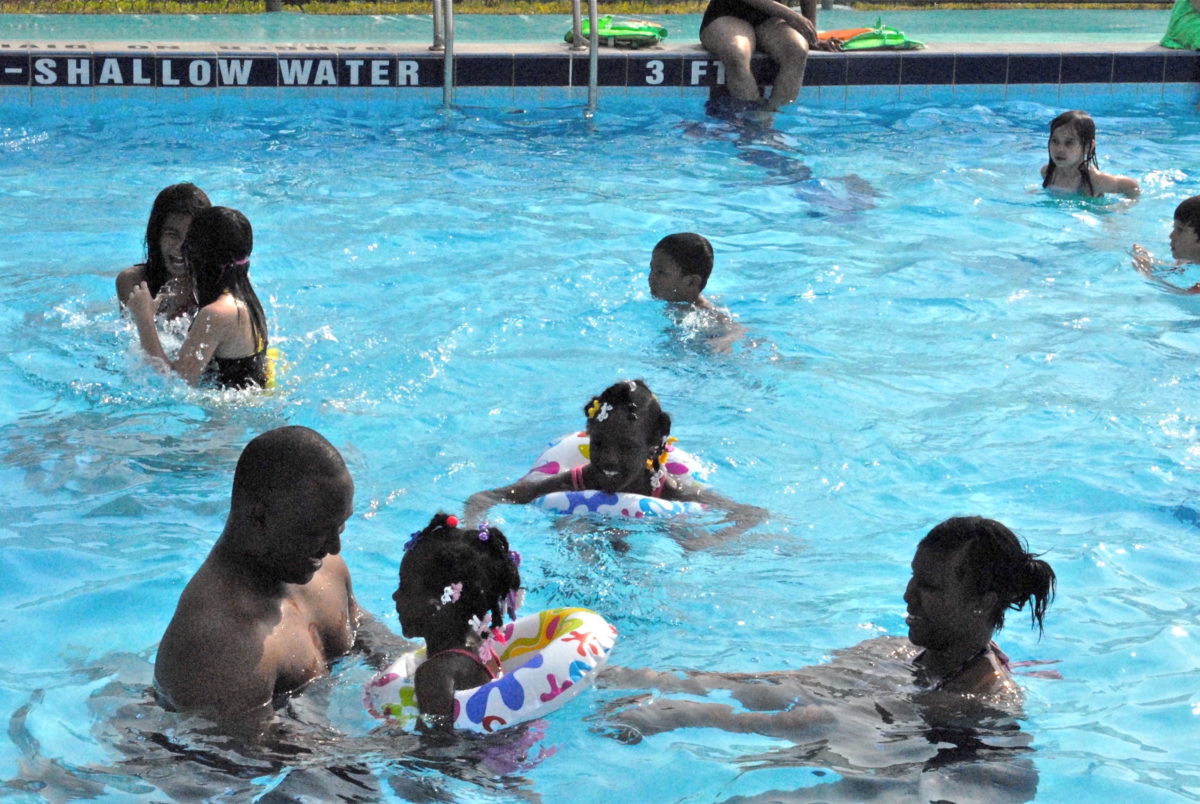Newsletter
To Fight Gun Violence, Kids Need Places to Play
When I was 19, I worked in an emotional support classroom in a North Philadelphia elementary school. I saw children as young as five get treated like prisoners.


To Fight Gun Violence, Kids Need Places to Play
Ras Stanford
When I was 19 years old, I worked for six months in an emotional support classroom in a North Philadelphia elementary school. I witnessed children as young as five years old get treated like prisoners in the hallways. Children were regularly profiled as criminals by school staff and the campus lacked a fence around the schoolyard. This meant that adults from the community could wander onto campus during recess. There was no playground equipment, just vacant blacktop.
More than a decade later, gun violence rages in Philadelphia and the city is significantly boosting funding for police in response. The children I oversaw are now young adults, no doubt working to avoid the fates of many of their peers as survivors and drivers of gun violence. I now wonder what we expected the children forced into these situations to grow into. When we systematically deprive Black, brown, and low-income children the opportunity to safely play and explore alongside other children in their communities, we breed a generation with little hope, investment, or skill in navigating conflict and interpersonal dynamics.
In June, community members in my neighborhood laid empty kiddie pools outside the shuttered Sayre Morris Recreation Center in West Philadelphia to protest the number of recreation centers with empty pools this spring and summer, despite high temperatures and the epidemic of gun violence plaguing our neighborhoods. The Sayre Morris Center’s pool, for example, has been closed since 2017.
Kirsten Britt, president of the Sayre Advisory Council and founder of the #IDeserve2Swim movement, told The Appeal that free neighborhood recreation centers have historically filled that gap in her neighborhood. “These places were the first line of defense for young people to stay out of trouble,” she said. “Whether parents were engaged or not, they would have somewhere where people looked out for them.”
Now, Britt says, pools remain closed in areas where they are needed most. In Philadelphia, children struggle to face the grief and trauma that comes with living through a massive gun violence epidemic—and for years have suffered as the few safe places they have to play in low-income areas have been shut down.
According to the Philadelphia Inquirer, children in some of the city’s hardest-hit areas have been without local pools for at least three summers. While the city says it is facing a lifeguard shortage, the Inquirer in 2021 reported that 73 percent of the city’s closed pools were in areas where the median income is less than $40,000 per year.
“There are staff shortages, constant changeover, no community input about handling transfers, the buildings are poorly maintained, and that becomes the excuse to close them,” Britt said.
While pools and rec centers may seem insignificant compared to the enormous issues of gun violence, youth mental health, and mass incarceration, the neglect and erasure of safe spaces to play dehumanizes and adultifies children from poor, and/or Black neighborhoods. Research suggests that well-maintained environments help communities reduce violent crime. And the United Nations lists “the right to play” in its Convention on the Rights of the Child, a human-rights treaty that every single U.N. member has ratified—except for the United States.
The pool is just one safe space for children without the means to play. In Philadelphia in 2019, two-thirds of elementary schools did not have working playgrounds. Children instead play in parking lots. In 2019, millions of Americans did not have regular access to parks, especially those from poor or predominantly Black neighborhoods. Since the pandemic, recreation centers, libraries, and pools have been affected by closures and short staffing. Nationwide, children in Black and brown communities are three times less likely to have consistent access to green space. By the time they are six years old, low-income children spend 1,300 fewer hours in novel places outside the home and school than wealthier children. Surprisingly, children living in rural areas also often lack safe play opportunities.
Back in Philadelphia, city council recently passed a bill that would fine developers who cut down and do not replace trees as part of a larger commitment to increase the tree canopy of the city 30 percent by 2025. Across the country, asphalt playgrounds are being greened and turned into public parks. Play-centered policy in educational, juvenile legal, and other child and youth-serving systems can help to address root causes of community mental health issues. Simply ensuring the safe free play of children and youth can interrupt generational cycles of poverty, and avert pathways into incarceration.
“It’s strategic,” Britt said. “If you don’t create spaces for young people to be successful, you’re saying you don’t want them to be successful. If you don’t fund schools and safe spaces properly, you’re saying ‘we don’t want you to be safe.’”
In the news
Residents of the home involved in a stand-off with an Albuquerque, New Mexico, SWAT team say law enforcement used flash-bang grenades, igniting a fire that left them homeless and a teenager dead. [KOB4]
Victoria Law spoke with Tracy McCarter, a domestic violence survivor and nurse who maintains she killed her abusive estranged husband in self-defense. The Manhattan District Attorney’s office is prosecuting McCarter for murder. [Victoria Law / The Nation]
A mother of six is at risk of homelessness because of an 11-year-old drug-related conviction. She has started a GoFundMe to help raise money for the family’s housing expenses. [Molly Duerig / Spectrum News 13]
Elijah Muhammad, 31, is the tenth Rikers Island detainee to die this year. [Graham Rayman and Thomas Tracy / Daily News]
San Francisco Mayor London Breed has appointed Brooke Jenkins to replace the recalled Chesa Boudin as District Attorney. Jenkins has said she wants to undo several of Boudin’s reforms. She wants to give prosecutors the power to request cash bail and to charge children as adults. [Samantha Michaels / Mother Jones] From The Appeal: The Fight to Recall Chesa Boudin was a Fight to Protect the Status Quo
ICYMI — from The Appeal
A federal district court judge in Arizona has blocked a state law that gave fetuses the same rights as people. But, as Meg O’Connor reports, the legal status of abortion in Arizona still remains unclear.
Police officers in San Diego have arrested a man 160+ times, mostly on low-level charges. As Kelly Davis reports, his story offers a window into a system that immensely harms so many people who are chronically homeless or have mental illness.
Law enforcement agencies spend hundreds of millions each year on militarized sweeps of sex-offense registrants. The evidence shows the operations do little to prevent sexual violence. But as Steven Yoder reports, they’re a powerful tool for copaganda.
Fulton County District Attorney Fani Willis has earned praise recently for investigating Trump and vowing not to prosecute abortion seekers. This glossy coverage, however, has largely ignored Willis’’s tireless efforts to incarcerate Black educators, writes Anna Simonton.
That’s all for this week. Feel free to leave us some feedback, and if you want to invest in the future of The Appeal, please donate to our anniversary campaign here.
If you become a sustaining monthly donor at $25 or more, we’ll send you our brand new “Fire Your Bosses” t-shirt!
